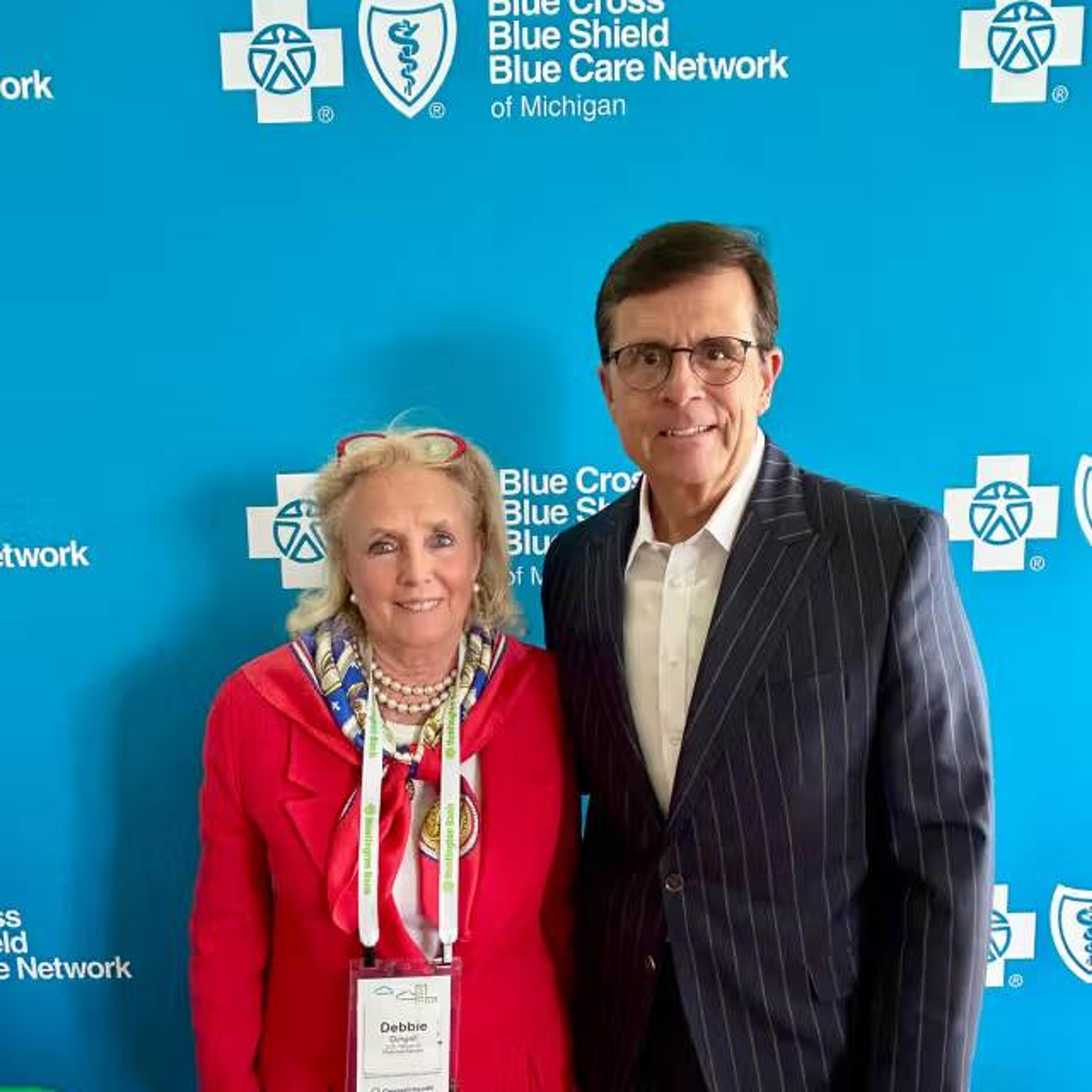
Health care affordability isn’t just about insurance premiums and co-pays — it’s also about what happens when people go without coverage altogether. In this episode of the A Healthier Michigan Podcast, recorded live at the 2025 Mackinac Policy Conference, leaders in health care, policy and philanthropy discuss the invisible but growing pressure of uncompensated care on Michigan’s health system.
Guests include Rob Casalou, Executive Director at Trinity Health; Andy Hetzel, Vice President of Corporate Communications at Blue Cross Blue Shield of Michigan; Congresswoman Debbie Dingell; and State Representative Curt VanderWall. Their conversation offers an insightful look at what happens when uninsured individuals turn to emergency rooms for care — and how that cost ends up affecting everyone.
Casalou explains that nonprofit hospitals are legally and ethically obligated to treat anyone who arrives in their emergency departments, regardless of their ability to pay. While that mission is core to the values of community health systems, it also means hospitals must find ways to absorb the cost of care delivered without reimbursement. And that cost isn’t small —uncompensated care in Michigan amounts to hundreds of millions of dollars each year.
Andy Hetzel expands on the ripple effect. He explains that when hospitals can’t recover the costs of uncompensated care, those expenses don’t disappear—they get distributed across the health care system. That often shows up in higher hospital prices, which in turn impact insurance rates and premiums for everyone else.
Congresswoman Dingell and Representative VanderWall focus on the policy landscape, stressing how critical Medicaid expansion, federal subsidies and state funding are in reducing the number of uninsured people. They note that when the number of people covered goes up, uncompensated care goes down. It’s a reminder that affordability doesn’t start in the emergency room — it starts with making sure people have access to coverage and preventive care in the first place.
All of the panelists agree: uncompensated care is a shared burden — and addressing it requires upstream solutions. Strengthening the safety net, expanding access and maintaining stable public programs are essential to creating a more sustainable system where fewer people fall through the cracks.
Listen to the full episode to hear how health leaders and policymakers are working to reduce the strain of uncompensated care and protect access to care for all Michiganders.
Photo credit: Blue Cross Blue Shield of Michigan






